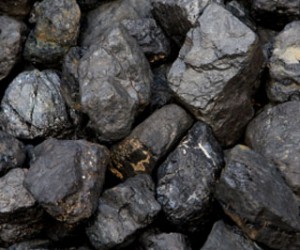Aptly titled ‘Limpopo Coal Conference - of coal, gas and water – a tense trilogy!’ the conference has caught the attention of national, provincial and regional government. Coal and gas projects are being planned for the five coalfields of Pafuri, Tshipise, Tuli, Mopani and Springbok Flats with “big brother” Waterberg, not to be forgotten. If coal is to continue to be the major source of energy (and export) in this country, the Limpopo coalfields could replace the now heavily exploited areas in the Witbank, Highveld and Mpumalanga Coalfields. These northern coal fields host the vast majority of the country’s remaining largely undeveloped, coal resources.
However, there is much to consider with respect to the optimal realisation of the huge potential these virgin coalfields offer to South Africa and the Limpopo Province in particular. Water shortages and insufficiently developed infrastructure as well as environmental sensitivities are major challenges in the region. All of these issues and more will be addressed at the conference.
In an interview with The New Age, John Wallington CEO of CoAL, one of the keynote speakers at the conference and a miner in the region, acknowledged the challenges of these projects. ‘CoAL recognises its responsibility to protect the natural and cultural abundance of the heritage site, while substantially increasing the size of the local economy and creating desperately needed jobs in the vicinity. In this way, the company is committed to establishing an appropriate balance between extraction, conservation and socio-economic development in that region.’
How these newly evolving coal fields are managed will determine whether or not we see an example of resource development taking cognisance of the environment while delivering economic, technical and socially sustainable projects of Limpopo Province. This is crucial for the country, its future energy supply and the upliftment of the citizens of Limpopo Province in particular and South Africa as a whole.
In addition to coal, both the Limpopo coal basins and the Springbok Flats Coal Field are considered suitable for the extraction of coal bed methane (CBM) which is present in many of the extensive deep coal deposits in this region. Despite being a significant greenhouse gas with a global warming potential equivalent to 21 times that of the same quantity of carbon dioxide, methane is a commercially valuable, exploitable gas for domestic, industrial and energy generation applications. Historically in South Africa it has been standard practice to ventilate methane gas from coal mines for safety reasons. Due to low methane concentration in our shallow coal mines, to date South Africa has not had to pay too much attention to the capture and flaring of methane except in a few instances (New Denmark, Ermelo Mine and Majuba Colliery in particular).
Underground coal gasification (UCG) is a further topic for consideration in the Limpopo coalfields. Oliver Barker, Conference chairperson, believes ‘it would be best for the Springbok Flats coalfield to be developed initially for CBM and subsequently for coal and uranium and not be a target for UCG.’
Whatever form of exploitation is planned for the Limpopo coalfields, it should be evaluated in terms of the optimal energy resource potential whilst also taking into account, the environmental impacts on significant regional and internationally recognised wetland and river system which comprise the Limpopo River catchment basin.
With respect to the need for water in the region, there are some alluvial aquifers in the Limpopo River basin. The subsurface flow of the river and several tributaries provide groundwater to neighbouring towns. The protection of this area plus the projected price increase of water has motivated the need to design new coal handling and processing plants as zero effluent facilities have become an environmental requirement.
In support of this, the topics to be discussed at the conference will include sustainable relationships between mining and environment, transportation, water management and community development and technology.
An integrated approach to the development of this important energy resourced region is therefore vitally important if coal and its associated fossil fuels will remain South Africa’s major energy source into the foreseeable future.
A field trip will take place on Saturday 27 October to the Limpopo Valley region with presentations by de Beers and a presentation on the World Heritage Site of Mapungubwe at the Mapungubwe site auditorium followed by a visit to the Vele Coal mine of Coal of Africa Limited (CoAL).
All wishing to attend this conference should contact the conference secretariat: RCA Conference Organisers: robbie@rca.co.za or events@rca.co.za
Source: The Fossil Fuel Foundation.






